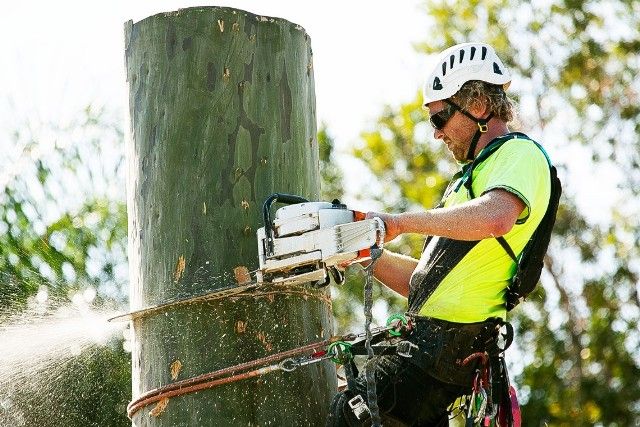
“Embrace the Journey: Discover Deeper Connections and Authentic Experiences with Slow Travel.”
Introduction
Slow travel is gaining popularity among outbound tourists as a response to the fast-paced nature of modern life and the desire for more meaningful travel experiences. This approach emphasizes immersion in local cultures, sustainability, and a deeper connection to destinations, allowing travelers to appreciate the nuances of their surroundings. As travelers seek to escape the superficiality of hurried itineraries, slow travel offers a chance to savor each moment, engage with local communities, and foster a greater understanding of the places they visit. This trend reflects a broader shift towards mindfulness and intentionality in travel, prioritizing quality over quantity and enriching the overall travel experience.
Embracing Authentic Experiences
In recent years, the concept of slow travel has gained significant traction among outbound tourists, reflecting a broader shift in travel preferences. This movement emphasizes the importance of embracing authentic experiences, allowing travelers to immerse themselves in the local culture, traditions, and lifestyles of their destinations. As the world becomes increasingly interconnected, many individuals are seeking deeper connections with the places they visit, moving away from the superficiality often associated with fast-paced tourism.
One of the primary reasons for this growing interest in slow travel is the desire for meaningful interactions. Tourists are increasingly aware that fleeting visits to popular attractions often fail to provide a true sense of a destination. Instead, they are opting for experiences that foster genuine connections with local communities. By engaging with residents, participating in traditional activities, and exploring lesser-known locales, travelers can gain insights into the cultural fabric of a place. This approach not only enriches their understanding but also fosters a sense of respect and appreciation for the local way of life.
Moreover, slow travel encourages a more sustainable approach to tourism. As travelers take the time to explore a destination at a leisurely pace, they are more likely to support local businesses, artisans, and farmers. This shift in focus helps to ensure that the economic benefits of tourism are distributed more equitably within the community. By prioritizing local experiences over mass-produced souvenirs or chain restaurants, tourists contribute to the preservation of cultural heritage and the environment. This conscious choice resonates with many travelers who are increasingly concerned about the impact of their journeys on the planet.
In addition to sustainability, slow travel promotes personal well-being. The fast-paced nature of modern life often leaves individuals feeling rushed and disconnected. By adopting a slower travel mindset, tourists can prioritize relaxation and mindfulness during their journeys. This approach allows them to savor each moment, whether it be enjoying a leisurely meal at a local eatery or taking a quiet stroll through a picturesque village. Such experiences not only enhance enjoyment but also provide opportunities for reflection and personal growth, making travel a transformative experience.
Furthermore, the rise of technology has played a significant role in the popularity of slow travel. With the advent of social media and travel blogs, travelers are increasingly exposed to authentic experiences shared by others. This exposure has sparked a desire to seek out unique adventures that go beyond the typical tourist itinerary. As travelers share their stories and recommendations online, they inspire others to embrace a similar approach, creating a ripple effect that encourages more people to prioritize authenticity over convenience.
As the slow travel movement continues to gain momentum, it is clear that travelers are redefining their priorities. The desire for authentic experiences, sustainable practices, and personal well-being is reshaping the way individuals approach their journeys. By embracing this philosophy, tourists not only enrich their own lives but also contribute positively to the communities they visit. In this way, slow travel represents a profound shift in the tourism landscape, one that values depth over breadth and connection over consumption. As more travelers recognize the benefits of this approach, it is likely that the trend will continue to flourish, paving the way for a more thoughtful and enriching travel experience for all.
Environmental Sustainability
In recent years, the concept of slow travel has gained significant traction among outbound tourists, largely due to its alignment with the principles of environmental sustainability. As global awareness of climate change and ecological degradation intensifies, travelers are increasingly seeking ways to minimize their carbon footprint while still enjoying enriching experiences. This shift in mindset reflects a broader societal trend towards more responsible consumption and lifestyle choices, prompting many to reconsider how they engage with the world around them.
One of the primary tenets of slow travel is the emphasis on immersing oneself in a destination rather than rushing through it. This approach encourages tourists to spend more time in fewer locations, which not only fosters a deeper connection with the local culture but also reduces the environmental impact associated with frequent travel. By opting for longer stays, travelers can utilize more sustainable modes of transportation, such as trains or bicycles, rather than relying on air travel, which is notorious for its high carbon emissions. Consequently, this shift not only benefits the environment but also enhances the overall travel experience, allowing individuals to appreciate the nuances of a place that might otherwise go unnoticed in a whirlwind itinerary.
Moreover, slow travel promotes the support of local economies, which is another crucial aspect of environmental sustainability. When tourists choose to engage with local businesses, such as family-owned restaurants, artisan shops, and community-led tours, they contribute to the preservation of cultural heritage and the sustainable development of the area. This practice not only helps to maintain the unique character of a destination but also encourages responsible tourism practices that prioritize environmental stewardship. By investing in local enterprises, travelers can help ensure that the benefits of tourism are distributed more equitably, fostering a sense of community and encouraging sustainable practices among local stakeholders.
In addition to supporting local economies, slow travel often involves a more mindful approach to consumption. Tourists are increasingly aware of the environmental implications of their choices, from the food they eat to the souvenirs they purchase. This heightened awareness has led to a preference for organic, locally sourced food and eco-friendly products, which further reduces the carbon footprint associated with transportation and production. By prioritizing sustainable options, travelers not only enhance their own experiences but also contribute to a broader movement towards environmental responsibility.
Furthermore, slow travel encourages a deeper appreciation for nature and the environment. As travelers take the time to explore natural landscapes, engage in outdoor activities, and participate in conservation efforts, they develop a stronger connection to the planet. This connection often translates into a greater commitment to environmental advocacy, as individuals become more aware of the challenges facing ecosystems and biodiversity. By fostering a sense of stewardship, slow travel can inspire tourists to take action in their own communities, promoting sustainable practices that extend beyond their travel experiences.
In conclusion, the growing popularity of slow travel among outbound tourists can be attributed to its inherent focus on environmental sustainability. By prioritizing immersive experiences, supporting local economies, making mindful consumption choices, and fostering a connection to nature, travelers are not only enriching their own lives but also contributing to the preservation of the planet. As this trend continues to evolve, it holds the potential to reshape the tourism industry, encouraging a more sustainable and responsible approach to exploring the world.
Mental Health Benefits
In recent years, the concept of slow travel has gained significant traction among outbound tourists, largely due to its profound mental health benefits. As individuals increasingly seek meaningful experiences over mere sightseeing, the emphasis on mindfulness and well-being has become a central theme in travel. This shift is not merely a trend; it reflects a deeper understanding of how travel can impact mental health positively.
One of the primary advantages of slow travel is the opportunity it provides for travelers to disconnect from the fast-paced demands of modern life. In an era dominated by technology and constant connectivity, many individuals find themselves overwhelmed by the incessant flow of information and the pressures of daily responsibilities. Slow travel encourages a deliberate pace, allowing tourists to immerse themselves in their surroundings and engage with local cultures. This immersion fosters a sense of presence, enabling travelers to appreciate the nuances of their environment, which can lead to reduced stress and anxiety.
Moreover, slow travel often involves spending extended periods in a single location, which can enhance the quality of social interactions. By staying longer in one place, travelers have the chance to build relationships with locals and fellow travelers, creating a sense of community that is often lacking in traditional tourism. These connections can provide emotional support and a sense of belonging, both of which are crucial for mental well-being. Engaging in meaningful conversations and shared experiences can lead to increased feelings of happiness and fulfillment, further contributing to a positive mental state.
Additionally, slow travel encourages individuals to engage in activities that promote mindfulness and self-reflection. Whether it is through leisurely walks in nature, participating in local workshops, or simply enjoying a quiet moment in a café, these experiences allow travelers to slow down and reflect on their thoughts and feelings. This practice of mindfulness has been shown to reduce symptoms of depression and anxiety, as it encourages individuals to focus on the present moment rather than being preoccupied with past regrets or future worries. By cultivating a mindful approach to travel, individuals can return home with a renewed sense of clarity and purpose.
Furthermore, the emphasis on sustainability in slow travel aligns with a growing awareness of the importance of mental health. Many travelers are now seeking experiences that not only benefit themselves but also contribute positively to the communities they visit. This sense of purpose can enhance overall well-being, as individuals feel they are making a difference in the world around them. Engaging in sustainable practices, such as supporting local businesses or participating in conservation efforts, can foster a sense of accomplishment and satisfaction, which are vital components of mental health.
In conclusion, the rising popularity of slow travel among outbound tourists can be attributed to its numerous mental health benefits. By promoting a slower pace, fostering meaningful connections, encouraging mindfulness, and aligning with sustainable practices, slow travel offers a holistic approach to exploring the world. As travelers increasingly prioritize their mental well-being, it is likely that the slow travel movement will continue to flourish, providing individuals with enriching experiences that nourish both the mind and spirit. Ultimately, this shift in travel philosophy not only enhances personal well-being but also contributes to a more compassionate and connected global community.














